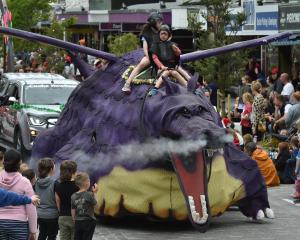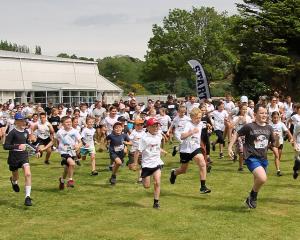Allein Kettink (86) was just a young girl when her brothers were murdered.
Her family was Dutch, living in the Netherlands when German forces invaded the country in 1940. Mrs Kettink (nee Braaffiaay) was 10.
For five years she would live under Nazi rule and looking back describes it as "a miserable ... scary time''.
"I lost two brothers. They were shot for not doing what they were told.
"They took almost all the young men from Holland to work in the camps.
"My brothers ... they tried to hide ... [and] tried to escape and they caught them and shot them,'' Mrs Kettink said.
"This is the first time I have talked about it.''
Her parents and nine siblings lived in Apeldoorn, not far from the capital Amsterdam.
"We were right in the middle [of war],'' Mrs Kettink said.
"We couldn't live in our house.
"We were living in shelters for the shooting and bombing.
"We didn't get any proper sleep.''
The Netherlands was invaded by Germany in May 1940 and was under Nazi rule until Germany's surrender in May 1945.
Mrs Kettink says life as she knew it no longer existed.
"We were living under the Germans.
"You could never trust the Germans.
"They had no feelings at all.
"We knew what was going on [but] we were too young and couldn't do anything.
"It was a scary time,'' she said.
Food was scarce and Mrs Kettink did not attend school for five years.
"We were happy when we got some food.
"My father was a real gardener and he tried to grow [food].''
She recalls a time when her father managed to grow potatoes for the family.
"They dropped the bombs right in the middle of the potatoes and the next morning we had to start again,'' she said.
Anzac Day and the build up to it were the only times Mrs Kettink thought about the war, although she and husband Jan (84) had been back to the Netherlands twice since immigrating here when she was 26.
"This time of the year I think about my brothers.
"Otherwise, I've made a new life here,'' she said.
Joyce Le Masurier (84, nee Henry) had a slightly different experience living on the island of Jersey in the Channel Islands, also occupied by Germany from 1940 to 1945.
The French woman was more upbeat about her experience when talking to the Otago Daily Times but said times were tough.
"Nobody liked the Gestapo,'' she said.
"We had to get off the pavement for them. They came into your house whenever they wanted to.
"Some were humane and some weren't. We just had to watch out.''
Food was the major problem for her family and everyone on the island and nobody ever had enough, Mrs Le Masurier said.
"There was no food on the island.
"Nothing [food] was coming in.
"To get food, we had to steal it.
"We knew where the Germans were baking the bread and we would go out and hide in the bushes and when they put it out to cool, we would steal it.''
Her father and brother were both sent to Germany to work but survived and came back after the war ended.
"Mum had a lot to look after.
"We had to look after each other.''
She and her eight siblings "always made fun of it though'', Mrs Le Masurier said.
When the war ended Mrs Le Masurier moved from Manchester, England, where she met husband Don (84), to Fairfield.
"We haven't been back. This is home.''
Her feelings about her wartime experiences were a "bit mixed'', she said.
Advertisement













